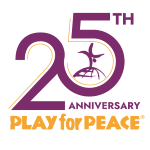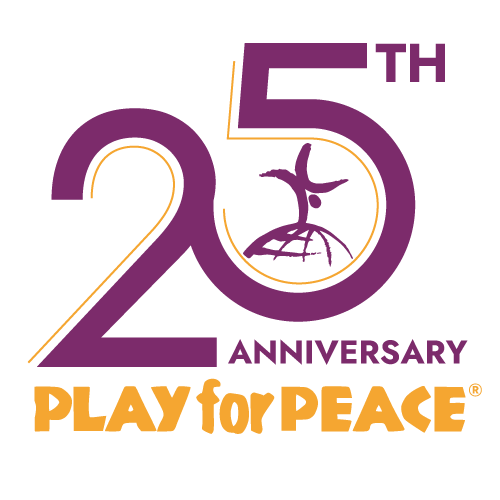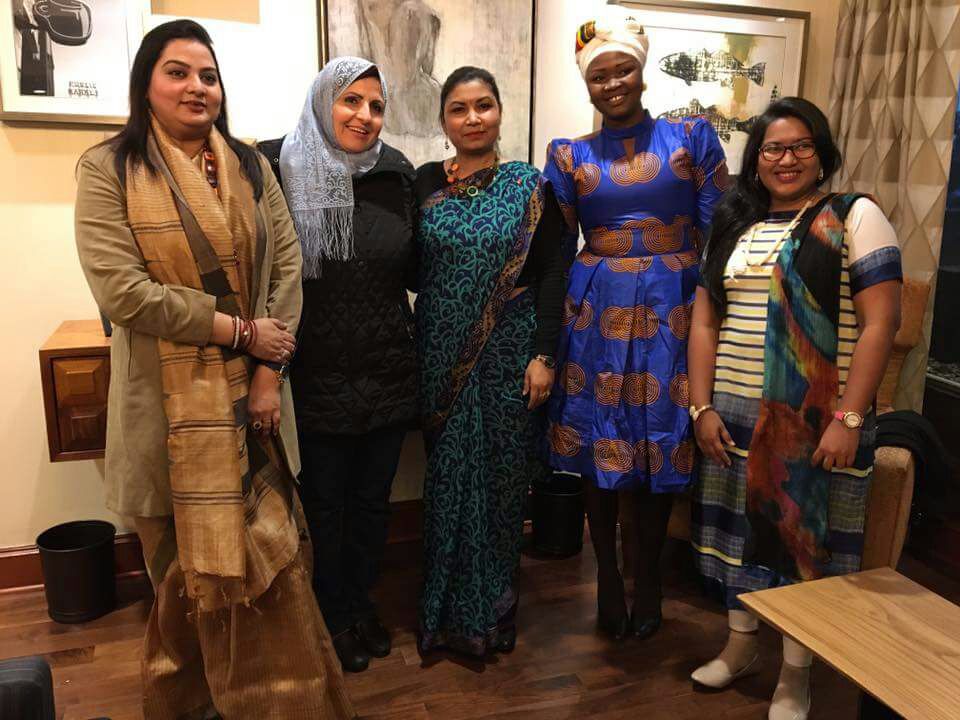“…what happens to someone today, may happen to you tomorrow,” shared Riya Williams Yuyada when asked why we should help refugees. Riya, once a refugee in Uganda but now a young leader and co-founder of Play for Peace South Sudan, has recently visited the U.S. to attend the three-week International Visitors Leadership Programme (IVLP). The program is hosted by the U.S. Department of State and focuses on women’s activism and education. Play for Peace talked with her about her experience in the U.S. and her view about bringing peace to the world. Originally from South Sudan, Riya moved to Uganda as a refugee at a very young age and lived there until she finished school. In 2014, she moved back to South Sudan, where she started working and helped make changes in her home country. This is her first visit to the U.S. and she has a very good impression of the country. “I think the country is very beautiful, very developed. And I love the fact that women are fighting for their rights, like the women are not resting at all. They are not resting and they’re fighting and they are not fighting individually but together to change, to see a better world for themselves.”
Initially, Riya intended to join another program, the Young African Leaders Initiative (YALI) also hosted by the U.S. Department of State. She was instead offered the opportunity to join IVLP, which requires a nomination from the participant's home country's U.S. Embassy. The nomination is based on the nominees’ work with their communities. During the three-week program, Riya and 21 other participants from all over the world traveled to D.C., Seattle, San Antonio, and Minneapolis to visit local organizations, nonprofits, and corporations. They learned about the U.S. government system, and politics, and shared ideas on feminism and their experiences on community development. Riya said she now has a deeper understanding of what women's activism is and has a clearer picture of what more she wants for her country.
“The program will help me push harder to create changes. I don’t think I’m going to be shy anymore or give up, ‘cause this program has given me positive energy. I met a lot of people with different experiences, with different challenges, but they are pushing through to see change, and that touched me. It has given me positive energy. It has given me hope that I can do this.” But how is it going to work? Riya is grateful to have met a group of “sisters and brothers” through IVLP and she believes their ideas and resources will put her in a better position to bring peace, equality, and justice back to South Sudan. Although Riya is not directly affected by the new immigration policy implemented in the U.S., she felt slightly awkward when she was stopped and additionally questioned by an officer at the U.S. airport. This also brought us to the topic of misunderstanding refugees. Riya thinks people misunderstand refugees a lot. Some people think that refugees may be criminals, want to come and take their lands and jobs, etc.
However, Riya has different views. “Sincerely speaking, refugees are innocent people who don’t even know what is happening. They don’t wish to be refugees. They're just running from an uncomfortable place, a place of inconvenience, sadness, and suffering, and seeking a place where they can just put their head down and sleep without hearing gunshots, without being scared about torture. People misunderstand refugees a lot, you know. But I think these are innocent souls who are just looking for a safer world to live in.” What does Riya think is the more appropriate way to bring peace to the world? “I think the best way to bring everlasting peace in this world is to invest in children, invest in peace education, ‘cause I believe children are very good investments. And if we plant a seed of peace in young children, it will be very easy to activate peace. So when I went for Play for Peace training, I felt like South Sudan is a fertile ground to plant a seed of peace and we should take this initiative. I joined my friends who attended the meeting. We finally started Play for Peace South Sudan and as we carry out activities or games from one school to another, and communicate with each other, I realize, if I tell a child to follow me, the child follows without even asking why or how. It is a very good investment, and I think, to be very fruitful in the long run.”
Riya also believes every person can do a lot to help refugees adjust to their new lives. She pointed out that many refugees don’t even know they have a right to life. Countries should join hands and speak up about the problems happening in the countries where the refugees flee from. “What happens in your neighbor’s house could extend to yours. If you see a fire in your neighbor’s house, it will be good for you as a neighbor to run and help. Otherwise, this fire will extend to yours.” It is a simple but realistic example given by Riya to explain why we need to join hands to help refugees and to create peace. Let’s cease the fire of war and pass on the torch of peace to our future generations all over the world.
[gallery size="medium" ids="8551,8552,8553,8554,8555,8556"]



